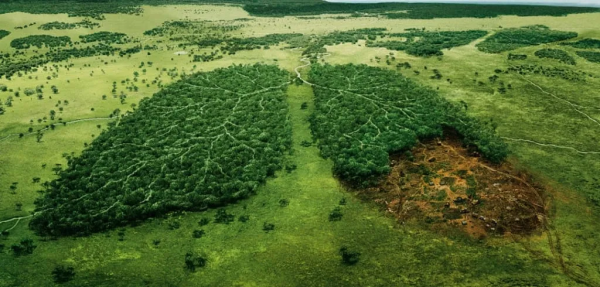Earth’s coming climate crisis

Courtesy of:ecoenergy.org
In a summer already full of extreme weather, it’s the heat waves roasting millions of people across these three continents that authenticate a grim climate prediction for many experts. Sizzling and rising temperatures in the United States and Canada and persistent heat in parts of Europe and northern Africa are creating dangerous health conditions, irritating land dehydration, and charging wildfires throughout the globe. And it’s this troubling joining of climate threats that researchers have been warning about for two decades.
Jonathan Martin, a professor of atmospheric science at the University of Wisconsin-Madison said, “Climate scientists were predicting exactly these kinds of things, that there would be an enhanced threat of these types of extreme events brought on by increased warming. It’s very distressing. These are not encouraging signs for our immediate future.”
Even though August is typically the hottest month of the year, this week’s stats may change that idea. The National Oceanic and Atmospheric Administration broadcasted Friday that the month of July was the most scorching on record. Destructive flooding killed more than 200 people in Europe last month, and wildfires are enraged in Siberia, across the Mediterranean, and along the western coasts of the U.S. and Canada. In an exploration produced last month, the journal Natural Climate Change, scientists found that devastating heat events are up to seven times more likely to occur between now and 2050, and more than 21 times more likely to occur from 2051 to 2080.
Though this is troubling, here are some things scientists have recommended to help stop climate change from expanding.
Speaking out to your friends, family, neighbors, etc. allows more people to be informed on how they can help and participate. Powering your home with renewable energy is another way to help. Choose a utility company that generates at least half its power from wind or solar and has been certified by Green-e-Energy, an organization that vets renewable energy options. Reducing your water waste is another option.
Saving water reduces carbon pollution, too. That’s because it takes a lot of energy to pump, heat, and treat your water. So take shorter showers, and turn off the tap while brushing your teeth. Lastly, maintaining your vehicle will aid in the stop of climate change. If all Americans kept their tires properly inflated, we could save 1.2 billion gallons of gas each year. A simple tune-up can boost miles per gallon anywhere from 4 percent to 40 percent, and a new air filter can get you a 10 percent boost.











